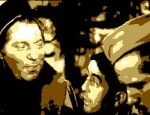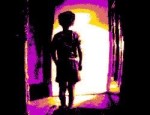Biography: life and films

Born in Paris in 1931, Annie Girardot had originally set her sights on becoming a nurse. However, she abandoned her studies and instead opted for an acting career. Graduating from the Paris conservatoire with honours, she soon found herself in the prestigious Comédie Française theatre troupe. She made her screen debut in André Hunebelle's comedy Treize à table (1956) and appeared in a handful of other films before she had her big break, in Luchino Visconti's Rocco and His Brothers (1960). It was whilst making this film that she fell in love with her co-star Renato Salvatori, whom she married a short while afterwards.
Over the next decade, Annie Girardot became one of the most popular French actresses of her generation, starring in a wide range of films, from frivolous comedies to serious modern dramas, bringing energy and conviction to each of her portrayals. She won the Best Actress Award at the 1965 Venice Film Festival for her performance in Marcel Carné's Trois chambres à Manhattan. In the 1970s, Girardot came to be associated with France's feminist movement and, for many, she symbolised the modern hardworking woman who had to fight against male prejudice to achieve happiness and personal fulfilment. One of her defining roles of this period was the one she played in Docteur Françoise Gailland (1976), for which she won her Best Actress César in 1977. She also gave a notable performance in André Cayatte's highly controversial Mourir d'aimer (1971).
Girardot's career floundered in the 1980s and she had difficulty finding work. It was Claude Lelouch, the director who had given her some of her best roles early in her career, who gave her the chance to make her big comeback, in Les Misérables (1995). The role not only won Girardot another César (for Best Supporting Actress) but revitalised her acting career. She won her third César for her supporting role in Michael Haneke's La Pianiste (2001). But, just when Annie Girardot had found a new lease of life, tragedy struck. In 2003, she was diagnosed with Alzheimer's disease.
Determined not to give in to her illness, Girardot kept it to herself and those closest to her, and continued working. It was not until September 2006 that she came out and revealed that she had Alzheimer's (in a famous interview in Paris Match). By 2007, Annie Girardot's illness had taken its toll and she was admitted to a private nursing home. Three years later, her family revealed that she had lost all trace of her memory. Ironically, she was still a household name in France, her films frequently showing on television. On 28th Februrary 2011, aged 79, Annie Girardot passed away peacefully. The warmth of the tributes that have been paid to her bear testimony to the affection with which she is still regarded in France.
© James Travers 2011
The above content is owned by frenchfilms.org and must not be copied.
Filmography
Click here to view complete list of films...The Golden Age of French cinema

The very best sci-fi movies

The very best American film comedies
